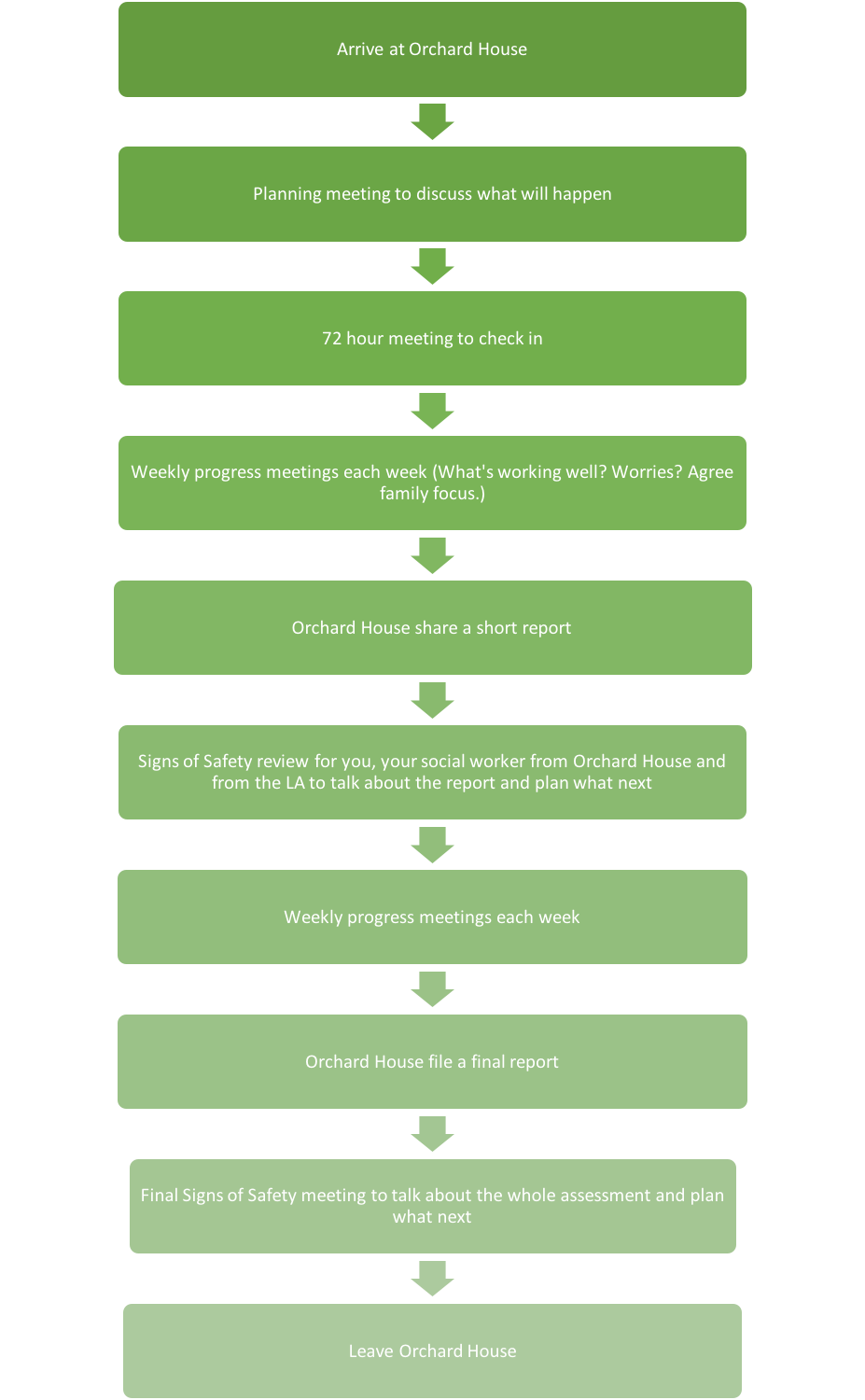What is a parenting assessment?
What do we mean by parenting?
Parenting means all of the things that are involved in looking after a baby or a child, and helping them get to adulthood safe and well.
keeping your child clean, clothed and fed
ensuring safety (making sure they are not hurt by making sure you are always watching them when they are active, not letting dangerous or frightening people to be around them, making sure that you do not leave them alone or with people who are not safe to care for them properly)
making your child feel special and cared for by you
how you help your child learn
how you are with your baby and around your baby that will help them learn how to manage their feelings and behaviour so they can do well in life
stability (giving your child a sense of safety by being the same sort of person with them all of the time, making sure that they feel secure in your care)
What are we assessing?
Orchard House are asked by the Court to assess (measure) your parenting. This means your skills in looking after a baby, your knowledge about what they need and your ability to give them what they need until they are grown up.
We are not looking for 'perfect' parents. The Court is thinking about your child's safety and the assessment is to see whether you are 'good enough' to keep your baby or child safe.
The NSPCC says that 'good enough' means:
meeting children's health and developmental needs
putting children's needs first
providing routine and consistent care
acknowledging problems and engaging with support services.
Things that are not safe for children are:
neglecting basic needs; putting adults' needs first
chaos and lack of routine
and an unwillingness to engage with support services
How do we assess parenting?
Whilst you are at Orchard House, we will work closely with you to build up the best picture we can of how you look after your baby. We will:
talk to you and listen to you
observe how you care for your baby at different times of the day or night, both in the house and out and about
support you and help you put this into practice and check whether you are able to keep going with this on your own
Sometimes we will talk to people who know you well, like your extended family. We might also use drug and alcohol testing to find out about your use of substances.
All assessments are a little bit different, but they follow the same plan. We will make sure we meet with you every week at the very least to talk about how things are going, this is called your 'weekly progress meeting'.
Each four or six weeks, we will try to get everyone together (including your child's local authority social worker) to make sure there is a clear plan for the next part of the assessment. This is called the 'Signs of Safety review'.



